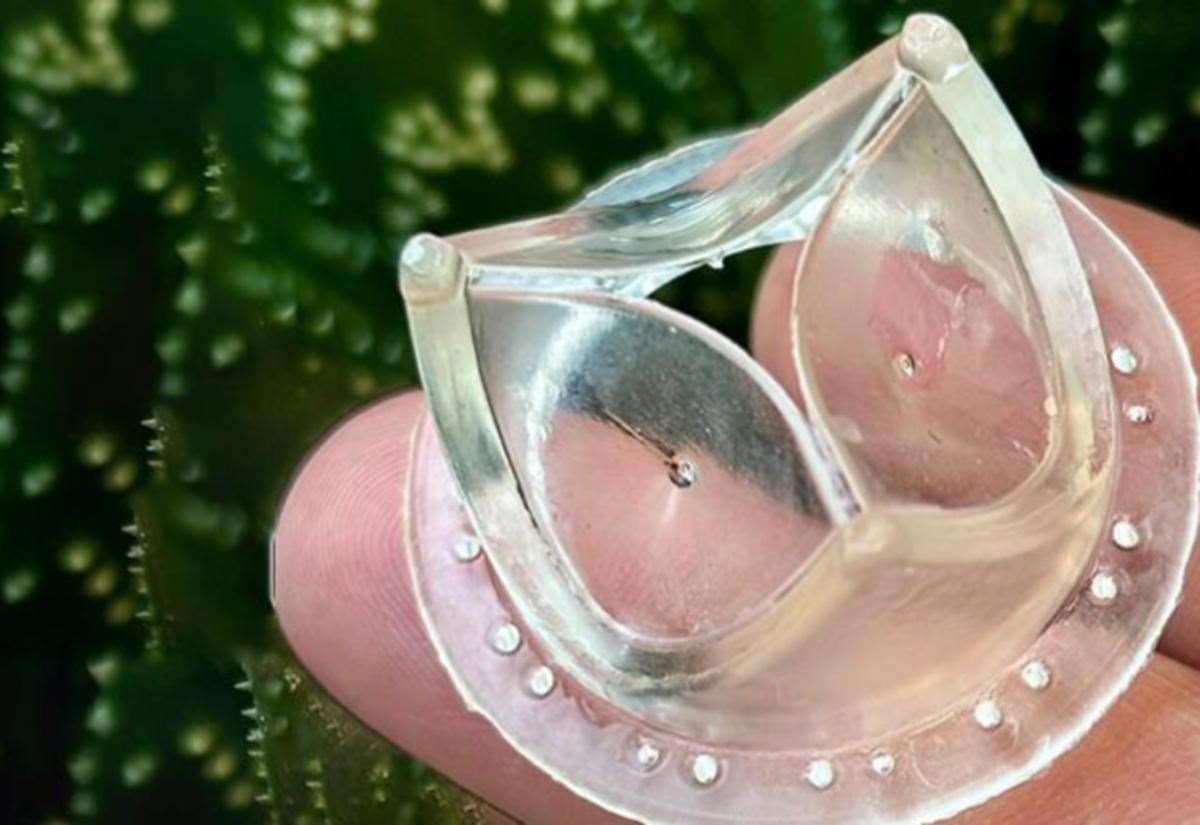It is hoped that an artificial heart valve made from a new type of plastic could be of use to millions of patients.
The polymer material used to make it has been shown to be safe following a six-month test in sheep, although more work is needed before it can be tested in humans.
SEBS polymer artificial heart valve prototype. Picture: Professor Raimondo Ascione, University of Bristol
Some 1.5 million patients need heart valve replacements each year. Some are given mechanical heart valves, which are durable but require lifelong blood thinners due to the high risk of blood clots. Others get biological valves made from animal tissue, but these typically last only eight to 10 years before needing replacement.
A new artificial heart valve developed by the researchers at the University of Cambridge and University of Bristol has been created from SEBS (styrene-block-ethylene/butyleneblock-styrene) – a type of plastic that has excellent durability but does not require blood thinners.
The researchers tested a prototype SEBS heart valve in a preclinical sheep model that mimicked how the vales might perform in humans, and monitored them over six months to examine potential long-term safety issues associated with the plastic material.
Their study, published in the European Journal of Cardio-Thoracic Surgery, explains how they found no evidence of harmful calcification – mineral build-up – or material deterioration, blood clotting or signs of cell toxicity.
Animal health, wellbeing, blood tests and weight proved stable and normal, and the prototype valve functioned well throughout the six months, with no need for blood thinners.
“More than 35 million patients’ heart valves are permanently damaged by rheumatic fever, and with an ageing population, this figure is predicted to increase four to five times by 2050,” said Prof Raimondo Ascione from the University of Bristol, the study’s clinical lead. “Our findings could mark the beginning of a new era for artificial heart valves: one that may offer safer, more durable and more patient-friendly options for patients of all ages, with fewer compromises.”
King’s College fellow Prof Geoff Moggridge, from Cambridge’s Department of Chemical Engineering and Biotechnology, was the biomaterial lead on the project.
He said:.“We are pleased that the new plastic material has been shown to be safe after six months of testing in vivo. Confirming the safety of the material has been an essential and reassuring step for us, and a green light to progress the new heart valve replacement toward bedside testing.”
The findings take the research a step closer towards human testing, but the next step will be to develop a clinical-grade version of the SEBS polymer heart valve and test it in a larger preclinical trial before seeking approval for a pilot human clinical trial.
The study was funded by a British Heart Foundation (BHF) grant and supported by a National Institute for Health and Care Research (NIHR) Invention for Innovation (i4i) programme Product Development Awards (PDA) award.
